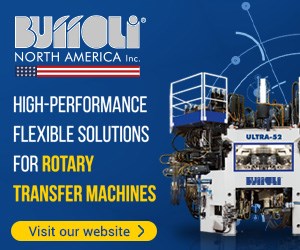Be a Product Inventor
If you manufacture things, be sure that it is a product that is "meaningfully unique" and differentiates/distances you from your competition.
"If you’re not meaningfully unique, you’d better be cheap." These are the words of Doug Hall (www.doughall.com), founder of Eureka! Ranch and P&G brand-building Wunderkind. The quote is also the mantra for the U.S. government’s latest initiative to lead manufacturing in this country into the new century.
The goal of the new administration’s plan is to help transition discrete manufacturing companies—small and mid-sized manufacturers (SMMs)—from the old economic model based on commodity and price to a new economic model based on innovation, technology and environment.
In other words, the government wants to help shops become inventors of products, which is believed will better position them to succeed. If you manufacture something, be sure that it is a product that is "meaningfully unique" and differentiates/distances you from your competition. If you don’t physically manufacture a product, then you will own it and enjoy that wealth.
The National Institute of Standards and Technology (NIST) and its Manufacturing Extension Partnership (MEP) network have partnered with Mr. Hall’s Planet Eureka! to create a multi-faceted program to help SMMs transition to these new business models.
The NIST/MEP Network: This network of more than 1,600 technical advisors have traditionally helped SMMs adopt lean and create new business tactics and strategies. The idea now is to shift the MEPs (usually housed in and co-sponsored by universities) from lean to this new initiative of helping SMMs transition toward innovation, invention, marketing and selling into new markets.
The National Innovation Marketplace ( www.usainnovation.org ): This online marketplace is designed to help SMMs connect with and sell ideas to larger manufacturers. Rather than simply presenting patents to prospective buyers, the National Innovation Marketplace looks to translate the ideas of SMMs into simple language that would engage prospects and begin the negotiation process to bring those ideas to market.
Planet Eureka!: Doug Hall’s outfit brings its product innovation/development chops to bear to fuel this initiative. It includes a five-part program to translate ideas and inventions into viable business opportunities and a process that will help to automate that translation. Mr. Hall intends to help you sell the idea and the product(s).
In June, Vice President Biden used a visit to an Ohio manufacturer to announce this initiative (watch video). I find it encouraging that this administration is focusing on manufacturing in this country and developing a strategy that is proactive.
On the other hand, I have to wonder if this program is sustainable for the long-term, or at least long enough to have a strong economic impact.
What about adoption? Will the SMMs that are targeted for this program understand it? Will they have the stomach to change? Would they be willing to make the investment? Would you be willing to take the risk?
I’ve seen first-hand the long road to adoption. We’re still on it. Manufacturing has been slow to adopt the Internet in general and reluctant to accept change in markets, economies and competition, especially when it appears that the government that is offering this opportunity is seen by some to have caused most of the mess U.S. manufacturing faces in the first place.
No one is more grateful than I am that we are doing something. I also believe in open, free markets and that the globalization of businesses is a path that offers opportunities. We can compete on the global stage, with some help.
However, the path to U.S. manufacturing strength shouldn’t overlook other opportunities to keep U.S. manufacturing viable while change is being accepted and adopted, such as less regulation, less government intervention and lower taxes.
*Doug Hall is a member of the Board of Directors at Gardner Publications Inc., which is the publishing company of Production Machining.
— MFG.com
Read Next
A Tooling Workshop Worth a Visit
Marubeni Citizen-Cincom’s tooling and accessory workshop offers a chance to learn more about ancillary devices that can boost machining efficiency and capability.
Read More5 Aspects of PMTS I Appreciate
The three-day edition of the 2025 Precision Machining Technology Show kicks off at the start of April. I’ll be there, and here are some reasons why.
Read MoreSeeing Automated Workpiece Measurement in Real Time
User-friendly inspection software for CNC machining centers was shown at IMTS 2024 monitoring measurements between and after machining while performing SPC based on recorded measurement values.
Read More












.jpg;maxWidth=300;quality=90)




